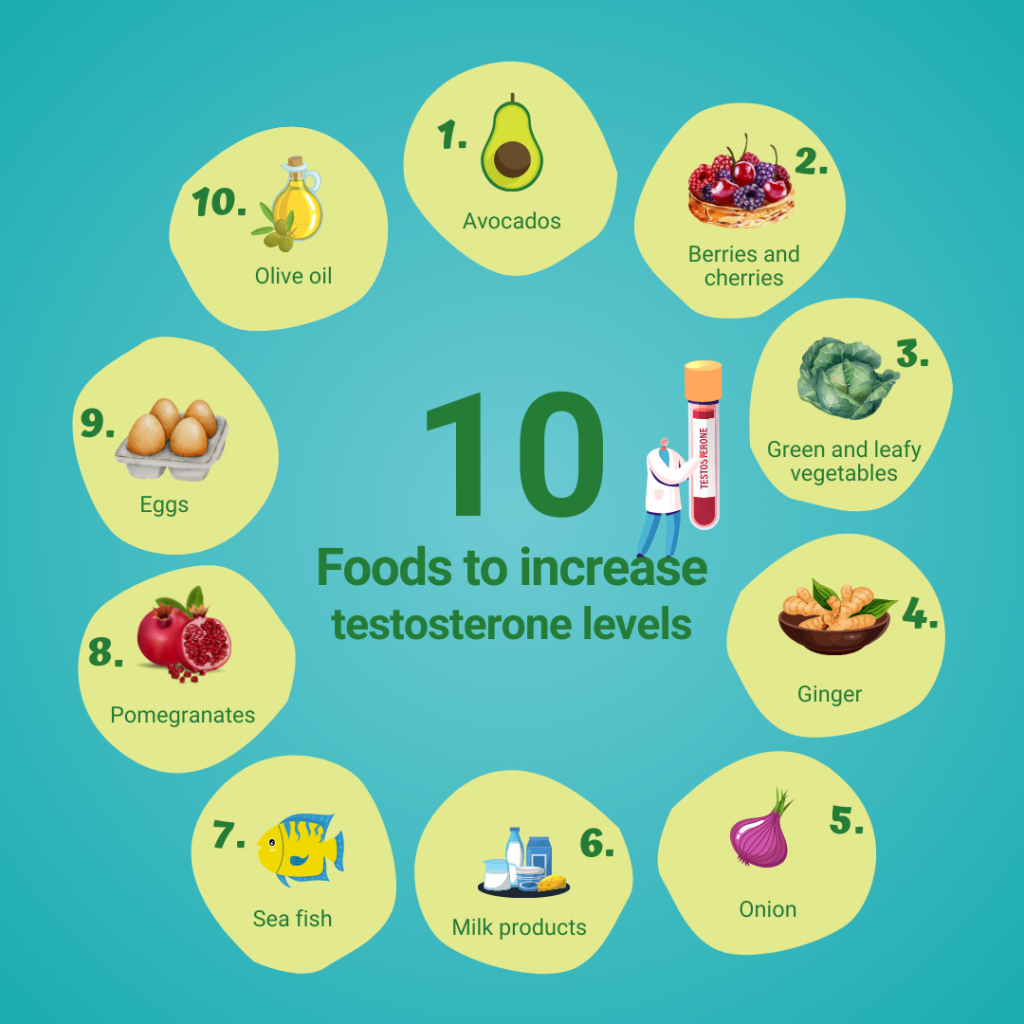5 Foods to Naturally Boost Testosterone and Combat Hair Loss. Navigating the changes brought on by perimenopause and menopause can be challenging, especially when it comes to hormonal balance. Many women experience a decline in testosterone levels, which can contribute to hair loss and decreased vitality. Fortunately, certain foods can help boost testosterone levels naturally, supporting overall health during this transition. This article explores the role of testosterone, how menopause affects its levels, the impact of diet on hormone balance, and five foods that can enhance testosterone production.

What is Testosterone?
Testosterone is a crucial hormone that plays a vital role in various bodily functions. While often associated with male health, testosterone is equally important for women. It contributes to:
- Muscle Mass: Supports muscle strength and mass maintenance.
- Bone Density: Helps maintain bone health and prevent osteoporosis.
- Sexual Health: Influences libido and sexual arousal.
- Mood Regulation: Affects mood stability and cognitive function.
In women, testosterone is produced in the ovaries, adrenal glands, and peripheral tissues. It is essential for maintaining energy levels, mood stability, and overall well-being.
How Menopause Affects Testosterone
During menopause, which marks the end of a woman’s reproductive years, there is a significant hormonal shift. The ovaries reduce their production of estrogen and progesterone, leading to an imbalance that can also affect testosterone levels.
Research indicates that while testosterone levels generally decline with age, some women may experience an increase in androgen levels relative to estrogen. This hormonal imbalance can lead to several symptoms including:
- Hair thinning or loss
- Decreased libido
- Mood swings
- Fatigue
Studies suggest that up to 50% of menopausal women experience noticeable hair thinning or loss due to these hormonal changes. Understanding this connection between menopause and testosterone is crucial for managing symptoms effectively.
How Diet Impacts Testosterone
Diet plays a significant role in regulating hormone levels, including testosterone. Consuming a diet high in processed foods can negatively impact hormone balance by promoting inflammation and insulin resistance. Conversely, nutrient-dense foods rich in vitamins and minerals can support healthy testosterone production.
Key dietary factors influencing testosterone levels include:
- Zinc: Essential for testosterone synthesis; deficiencies can lead to reduced levels.
- Healthy Fats: Omega-3 fatty acids support hormone production.
- Protein: Adequate protein intake is crucial for muscle maintenance and hormone regulation.
Incorporating specific foods into your diet can help maintain optimal testosterone levels during menopause.
5 Foods That Boost Testosterone Naturally
Incorporating certain foods into your diet can support testosterone production naturally. Here are five foods that have been shown to help boost testosterone levels:
- Oysters: Rich in zinc and D-aspartic acid, oysters are known for their ability to enhance testosterone production. Zinc is vital for maintaining normal testosterone levels in the blood.
- Avocados: Packed with healthy fats and pregnenolone (a precursor to testosterone), avocados support hormone synthesis while also promoting heart health.
- Salmon: High in omega-3 fatty acids and zinc, salmon not only boosts testosterone but also supports overall health. Regular consumption can improve energy levels and cognitive function.
- Mushrooms: Particularly shiitake mushrooms exposed to sunlight are high in vitamin D and B5, both of which contribute to the synthesis of steroid hormones like testosterone.
- Cruciferous Vegetables (Broccoli, Cauliflower): These vegetables contain compounds that help regulate estrogen levels in the body, supporting a healthier balance between estrogen and testosterone.
Incorporating these foods into your daily meals can create a supportive environment for maintaining healthy testosterone levels during menopause.

Bottom Line!
Navigating the challenges of perimenopause and menopause requires a comprehensive approach that includes understanding hormonal changes and making informed dietary choices. By focusing on nutrient-dense foods that naturally boost testosterone levels, women can mitigate some of the negative effects associated with hormonal imbalances. Embracing these dietary strategies not only supports hormone health but also enhances overall well-being during this significant life transition.
Incorporate these five foods into your diet today to promote hormonal balance and potentially reverse hair loss associated with menopause. Remember that individual responses may vary; consulting with a healthcare professional is advisable for personalized guidance tailored to your specific needs.
Also Read | You Are What You Eat: How Food Affects Our Mental Health










